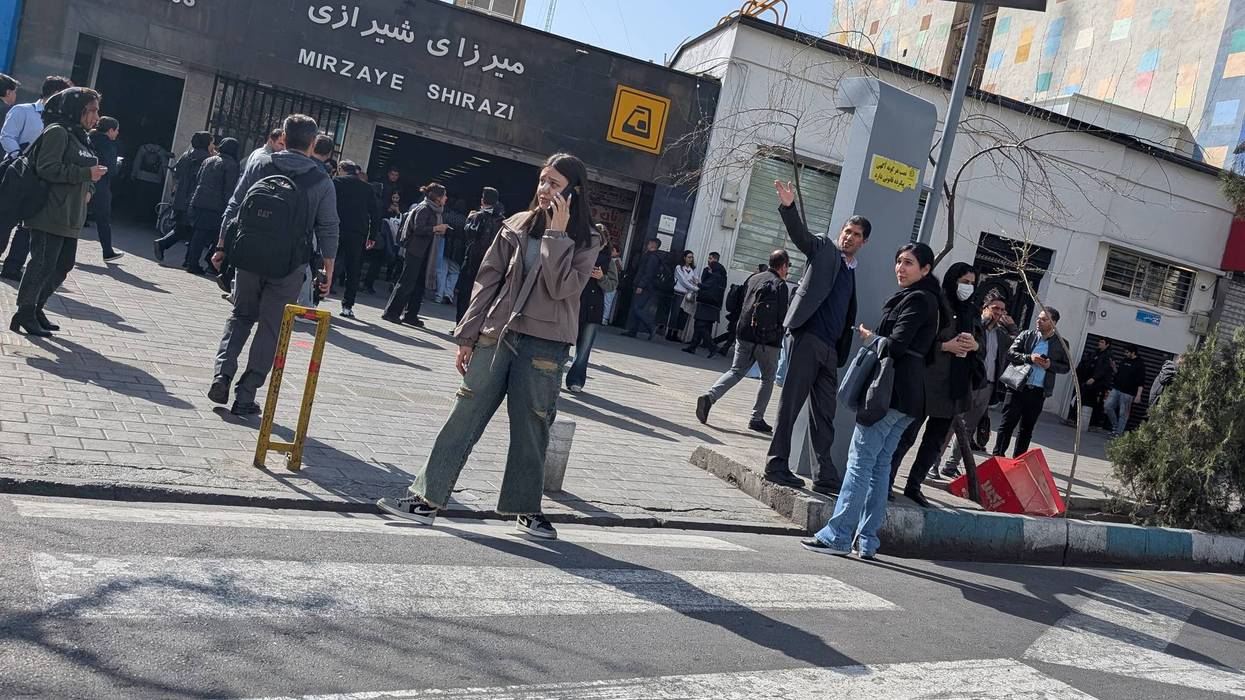January, 26 2012, 09:35am EDT

For Immediate Release
Contact:
Alan Barber, (202) 293-5380 x115
High and Rising Levels of Low-wage Work Remain a Cause for Concern in Many Countries
WASHINGTON
A new report released today by the Center for Economic and Policy Research (CEPR) shows that countries can succeed in reducing low pay, if they take the right steps.
"Low-wage Lessons" cites five lessons on low-wage work, drawn from the recent experiences of the United States and other rich nations. The most important lesson is that countries with more "inclusive" labor-market institutions --high minimum wages, high rates of unionization, a generous safety net, and other similar features-- have a far smaller share of their population in low-wage jobs.
"A country cannot outgrow low-wage work," said John Schmitt, author of the report and a senior economist with CEPR. "Higher levels of per capita GDP on their own do not lead to a reduction in a country's share of low-wage work."
The experience of the United States stands primarily as a model for how not to succeed in reducing low-wage work. The United States has the lowest unionization rate among rich countries, a weak minimum wage, a stingy benefits system, and the highest rate of low-wage work among rich economies. About one-fourth of U.S. workers are in low-wage jobs, according to the standard international definition of low-wage work of earning less than two-thirds of the national median wage. (The median wage is the wage received by the worker exactly in the middle of the wage distribution.)
In the United States, the minimum wage and the Earned Income Tax Credit (EITC) are the two most important policies in place to fight low pay. But, the report argues that they have largely been ineffective.
"The minimum wage and the EITC could be excellent tools to fight low-wage work," Schmitt said, "but, they have been set far too low to make a difference."
The report also emphasizes that low pay is only the most obvious problem facing low-wage workers in the United States. Low-wage workers are also far less likely to have health insurance, paid sick days, paid family leave and other benefits that are common in higher-wage jobs.
The Center for Economic and Policy Research (CEPR) was established in 1999 to promote democratic debate on the most important economic and social issues that affect people's lives. In order for citizens to effectively exercise their voices in a democracy, they should be informed about the problems and choices that they face. CEPR is committed to presenting issues in an accurate and understandable manner, so that the public is better prepared to choose among the various policy options.
(202) 293-5380LATEST NEWS
Iran Demands Emergency United Nations Action Amid 'Criminal Aggression' by US, Israel
"Just as we were ready for negotiations, we are more ready than ever for defense," said the Iranian Foreign Ministry.
Feb 28, 2026
As US and Israeli bombs fell on Tehran, the Iranian Foreign Ministry on Saturday vowed that the country would defend itself against "criminal aggression" and implored the United Nations Security Council to take emergency action.
The ministry said in a lengthy statement that Saturday's attacks, which US President Donald Trump characterized as the start of a massive military operation aimed at overthrowing the Iranian government, represent "a violation of Article 2, Paragraph 4, of the United Nations Charter and a clear armed aggression against the Islamic Republic of Iran."
"The Islamic Republic of Iran notes the grave duty of the United Nations and its Security Council to take immediate action to confront the violation of international peace and security," reads the ministry's statement, which noted that the US and Israeli assault began "in the midst of a diplomatic process."
"The Iranian people are now proud that they did everything they could to prevent war," the statement continues. "Now is the time to defend the homeland and confront the enemy's military aggression. Just as we were ready for negotiations, we are more ready than ever for defense. The armed forces of the Islamic Republic of Iran will respond to the aggressors with authority."
Ben Saul, the UN special rapporteur on human rights and counterterrorism, condemned US-Israeli "aggression against Iran" in a social media post, calling the assault a "violation of the most fundamental rule of international law—the ban on the use of force."
"All responsible governments should condemn this lawlessness from two countries who excel in shredding the international order," Saul added.
Keep ReadingShow Less
'Bombs Will Be Dropping Everywhere': Trump Launches Illegal Regime Change War Against Iran
"The US once again used the veneer of negotiations as a cover to bomb Iran."
Feb 28, 2026
President Donald Trump announced in the early hours of Saturday morning that the US has launched a massive military operation aimed at toppling the Iranian government as blasts were reported in Tehran, including near the offices of Supreme Leader Ayatollah Ali Khamenei.
Israel, under the leadership of Prime Minister Benjamin Netanyahu, is taking part in the assault. Unnamed Israeli security sources told Channel 12 that Israel and the Trump administration are "going all in" against Iran as Trump instructed Iranians to "stay sheltered," warning that "bombs will be dropping everywhere." People were seen seeking cover in Tehran as the US and Israeli bombs began to fall.
The assault, dubbed "Operation Epic Fury" by the Pentagon, comes days after the US and Iran took part in talks in Geneva, which Trump's envoys characterized as "positive." In announcing military action on Saturday, Trump said falsely that the Iranian government has "rejected every opportunity to renounce their nuclear ambitions."
The US and Israeli attacks—which both nations characterized as "preemptive"—are plainly illegal under international law, which prohibits the threat or use of force except in response to an armed attack. The Trump administration is also violating US law, which gives Congress the sole power to declare war.
"The term 'preemptive' is pure propaganda," wrote Drop Site journalist Jeremy Scahill. "The US once again used the veneer of negotiations as a cover to bomb Iran. Tehran had just offered terms that went far beyond the 2015 nuclear deal. What was preempted was diplomacy. The same propaganda tactics used in the 2003 Iraq war."
Trump, who ditched the 2015 nuclear deal during his first White House term, repeatedly made clear in his remarks Saturday that he does not intend the new assault on Iran to be limited in scope like his bombings of Iranian nuclear sites last year. In the weeks leading up to Saturday's attack, the Trump administration carried out a massive military buildup in the Middle East even as the president publicly claimed he was open to a diplomatic resolution.
"We may have casualties," the US president said of American troops. "That often happens in war. But we're doing this not for now. We're doing this for the future."
Trump also urged the Iranian armed forces to surrender or "face certain death."
The Iranian government's immediate response to Saturday's onslaught was a pledge of "crushing retaliation" and a wave of drone and missile attacks on Israel. The Associated Press reported that "hours after the strikes on Iran, explosions rocked northern Israel as the country worked to intercept incoming Iranian missiles."
Keep ReadingShow Less
Trump Says He's 'Entitled' to Illegal Third Term as Allies Draft Voter Suppression Decree
Extensions of presidential terms or abolition of limits are hallmarks of dictators and backsliding leaders of erstwhile democracies.
Feb 27, 2026
President Donald Trump raised eyebrows and angst among democracy defenders Friday for saying he deserves an unconstitutional third term in office, remarks that came a day after reporting that right-wing activists are drafting an executive order that could empower him to ban mail-in ballots and voting machines ahead of the 2026 midterm elections.
"Maybe we do one more term. Should we do one more?" the 79-year-old Republican president asked attendees of an event at the Port of Corpus Christi in Texas, to roaring applause. "Do one more term. Well, we are entitled to it."
During his State of the Union address on Tuesday, Trump rehashed his thoroughly debunked claim that Democrats stole the 2020 election for former President Joe Biden, saying this "should be my third term."
A third term would require a constitutional amendment, as the 22nd Amendment restricts US presidents to two terms in office.
Trump: Maybe we do one more term. Should we do one more? One more term. Well, we are entitled to it. pic.twitter.com/Niue0Q75Oo
— Acyn (@Acyn) February 27, 2026
Extensions of presidential terms or abolition of limits are hallmarks of dictators and backsliding leaders of erstwhile democracies. After Chinese President Xi Jinping lifted constitutional term limits in 2018, Trump marveled, "He's great," adding, "He's now president for life."
Trump has made cryptic allusions to a third term in office on multiple occasions.
While many Trump supporters believe he should also be president for life, his allies in actual positions of power—including Sen. Lindsey Graham (R-SC) and political strategist and convicted fraudster Steve Bannon, whom Trump granted clemency—have backed a third term for his administration.
A constitutional amendment enabling a third Trump term is not under any consideration and is all but impossible by the 2028 election. So Trump and his allies are working on other ways for the president to remain in office, focusing heavily on voter suppression. The Washington Post reported Thursday that a group of right-wing activists is writing a draft decree that would give the president “extraordinary power over voting." On Friday, Democracy Docket published an April 2025 version of the draft order provided by a Trump ally, which the outlet described as "riddled with errors."
According to the Post, the draft executive order would cite the pretext of alleged Chinese interference in the 2020 election. The Office of the Director of National Intelligence concluded that there was no such interference.
MS NOW national security contributor Marc Polymeropoulos called the draft order “batshit authoritarianism."
Keep ReadingShow Less
Most Popular


